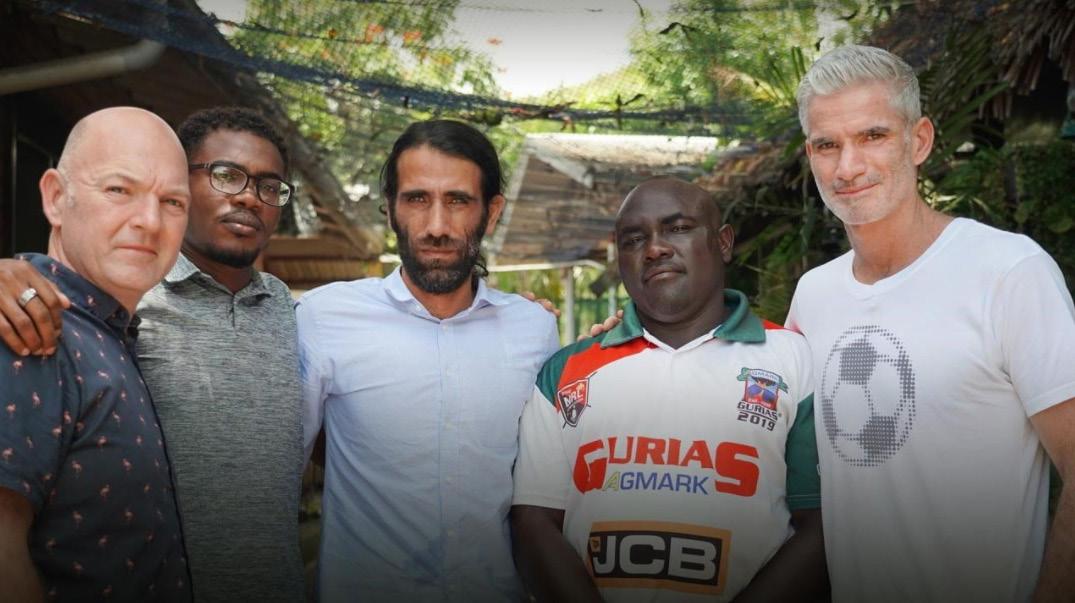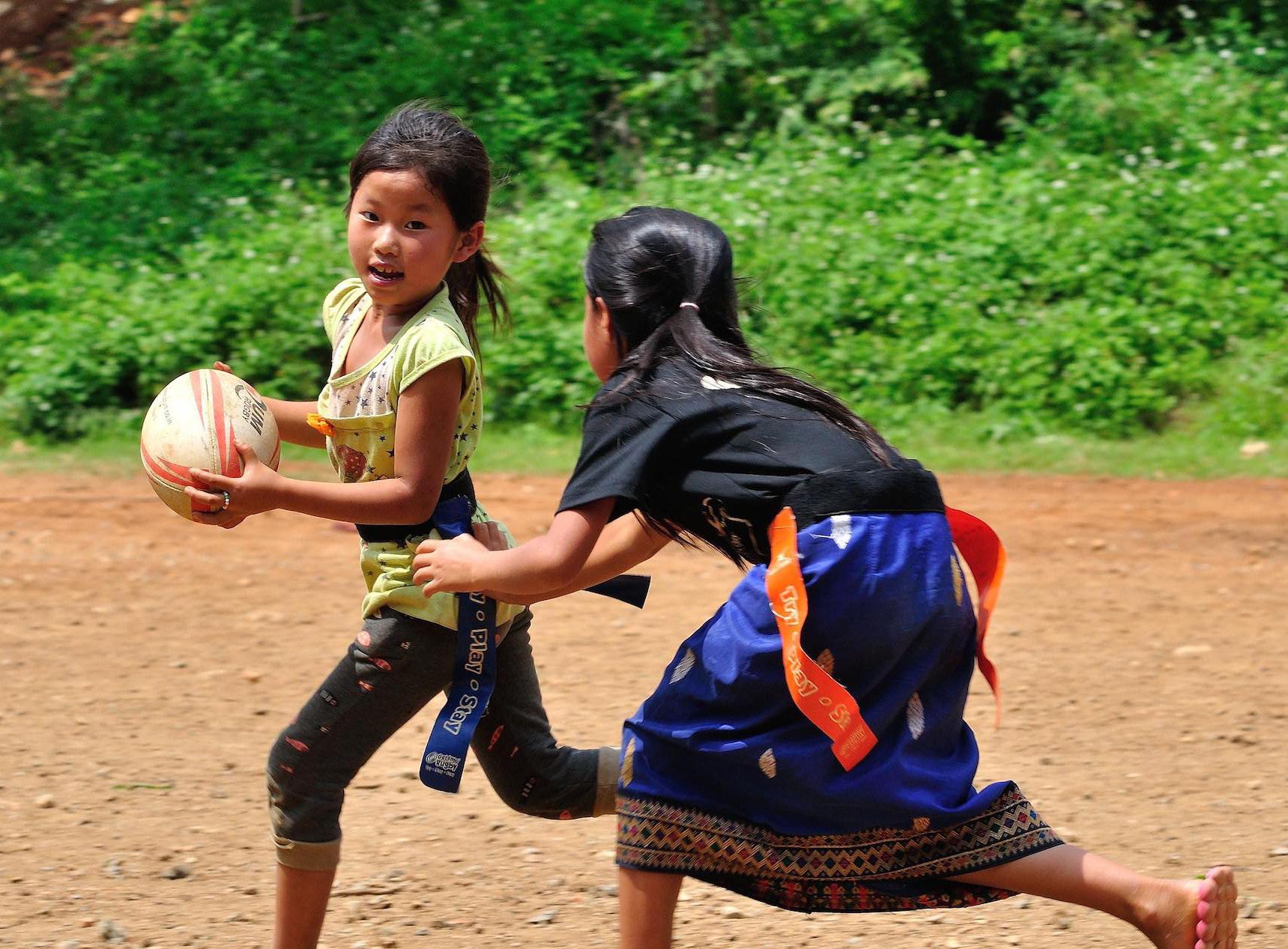
9 minute read
Sport
The prominent yet dangerous role of alcohol at major sporting events GEORGIA FRANC As a proud sporting nation, it’s embedded within Aussie culture to crack open a cold one with a few mates whilst watchon on the days of Melbourne Cup and the AFL Grand Final. The study outlined that there was a significant increase in motor vehicle ing the AFL Grand Final or indulging in a accidents among youth on the day of the glass of champagne over the races, how- Melbourne Cup, AFL Grand Final and ever the role alcohol plays in these events Formula 1 Grand Prix. There was also has shown to cause potential harms for the an increase in alcohol intoxication relatcommunity. ed ambulance attendances among youth In 2013, VicHealth released a report on the day of the Melbourne Cup. stating that the only places where Austra- The findings also portrayed that there lians do not think it is suitable to drink at were significant increases in the levels of is church, baby showers, and study groups. assaults and family incidents on the days The findings portrayed that 67 percent of of Melbourne Cup, Formula 1 Grand young Victorians (aged 16-29 years old) Prix, AFL Grand Final and international drink at levels that put them at risk of inju- cricket matches. ry from a single drinking occasion. The Melbourne Cup specifically When compared with older Victorians saw an increase in assaults both in the (aged 30 years and above), only 17 percent lead up to the event and on the day of of young Victorians thought it was ac- the event, whilst the day preceding the ceptable to be drunk at barbecues at home AFL Grand Final and Formula 1 Grand versus 35 percent of older Victorians. Prix saw elevated assaults for all groups Regarding being drunk at sporting events, examined except females. 14 percent of young Victorians thought it Throughout these major sporting was acceptable to be drunk in these envi- events alcohol advertising and sponsorronments in comparison to 32 percent of ship is extremely prevalent, normalising older Victorians. individuals to drink to get drunk and These findings suggest that older Victo- then engage in risky behaviours as a rians seek comfort in drinking within the result. comforts of their own homes and pairing Although alcohol will never be this with the recently eased COVID-19 banned at these events despite the spike lockdown, the role of alcohol within the of alcohol-induced harms that occur, home has played an increasingly central organisations such as Turning Point and role. VicHealth continue to target the pre Due to the coronavirus restrictions, the vention, intervention and treatment to 2020 Victorian sporting calendar has seen reduce the extent of these harms within drastic changes from the Formula 1 Grand the community. Prix being cancelled, to the Melbourne Cup not allowing spectators, to the AFL Grand Final being held in Queensland for the first time in 123 years. As a result, Victorians have watched these events live from home, drinking among their loved ones instead of gathering with friends either at the events in person or at other friends’ houses. Whilst there is an element of fun and excitement in having a drink or two while cheering on a sporting match, there is no denying the problematic relationship between alcohol and sport in Australia. Addiction treatment centre Turning Point and VicHealth released a joint report in 2011 outlining the alcohol-induced harms occurring at major sporting events, with significantly elevated case numbers of acute alcohol alcohol intoxication found HORSE RACING RSPCA Australia whip-free racing. The peer-reviewed study – published late in October in the journal Animals – effectively debunks traditional arguments by the racing industry, that the whip is needed to maintain “racing integrity” – ensuring every horse has a fair chance of winning – and the safety of riders by helping with steering. The study of 1,178 starters from 126 races compared stewards reports from
Peter Siddle launches Pink Stumps Day
Advertisement
IMAGE: McGrath Foundation. Cathy Freeman Foundation
Peter Siddle launches Pink Stumps Day ahead of summer of cricket
Former Australian fast bowler and Tasmanian Tigers recruit, Peter Siddle, was at Lindisfarne Cricket Club in September to officially launch the McGrath Foundation’s summer community fundraising initiative, Pink Stumps Day. Pink Stumps Day is one of many initiatives for the upcoming cricket season at community level, with most competitions commencing in September, October and November around the country. Last year, 360 cricket clubs made up more than 600 teams who took part in Pink Stumps Day, raising $682,000. Recently appointed as the official Pink Stumps Day 2020/21 Ambassador through the longstanding partnership between Cricket Australia and the McGrath Foundation, Siddle called on people across Australia to register a cricket game this summer to support people with breast cancer. “With 55 people diagnosed with breast cancer every day, Pink Stumps Day plays an integral role in raising funds for McGrath Breast Care Nurses who provide vital support to people with breast cancer and their families for free. This year with COVID-19 stopping many of the Foundation’s fundraising events the campaign is more important than ever,” Siddle said.
While the official Pink Stumps Day isn’t until Saturday, 6 February, people can hold an event at any time by registering at: www.pinkstumpsday.com.au
tant horse moving at the start of the race, or for safety reasons. “The study has given us a chance to test a really culturally entrenched assumption
Sport legends call on Australian Gov’t to accept NZ’s offer to resettle refugees

Amnesty International Australia
Former All Black and NRL superstar, Sonny Bill Williams, and former Socceroo, Craig Foster (pictured above), have joined forces to call on the Australian Government to finally accept the offer made by New Zealand in 2013 to resettle refugees stuck on Papua New Guinea and Nauru. As more than 65,000 signatures from the #GameOver campaign to get refugees stuck offshore to safety were handed over to two Parliamentarians, Craig Foster said: “We’ve come to Canberra to call on the Australian Government to finally accept the New Zealand offer to resettle 150 refugees a year. There are still just under 300 people stranded on PNG and Nauru and as the deal with the US is about to come to an end it is more urgent than ever we get these refugees to safety as soon as possible. “Australians across the country have been asking for this for many years. The mental and physical anguish these people have suffered has been terrible and it’s time for the Australian Government to do the right thing and accept the New Zealand offer.” Sonny Bill Williams said: “New Zealand has a proud resettlement history. Since the Second World War it has resettled over 35,000 refugees. This is not about politics, this is about a few hundred refugees who have suffered for too long and who are in need of a solution. New Zealand has offered to provide that solution, Australia
Study shows no reason for whips in racing
RSPCA Australia has welcomed a new study that calls into question the use of whips in horse racing, and strengthens the case for 59 “whipping-permitted” and 67 “whipping-free” races in the UK, and found no link between the use of whips and fairness or safety in the race. Specifically, the study compared races that took place over a similar time period, at the same racecourse, the same distance, with the same number of horses, and similar track conditions – meaning the only significant difference was whether or not the whip was used. For “whipping-free” races, the study examined the “Hands and Heels” series, a series of races for apprentice jockeys where whips cannot be used except to get a relucshould accept.””
about whip use in racing,” lead researcher, Dr Kirrilly Thompson from the University of South Australia, said. “There’s an assumption that whipping horses is important for the safety of riders. There’s also a belief that whipping horses makes them go faster. But no one’s actually tested these things before,” Dr Thompson said. “We found that whipping doesn’t work, and in particular, whipping doesn’t make horses run any faster. There were no significant differences between movement on course, interference on course, incidents related to jockey behaviour, or race finishing times. We can’t find anything to recommend the use of whips,” she said. RSPCA Australia Chief Scientist, Dr Bidda Jones, said there was no good reason to defend the use of the whip in horse racing. “We know that the public no longer supports whipping horses – for example, a recent poll found 69% of Victorians think horses should not be whipped in the normal course of a race, and 71% of Victorians who attend or bet on horse racing would continue to do so if whips were banned,” Dr Jones said. Racing Australia rules currently allow a horse to be whipped five times prior to the final stage of a race, and then an unlimited number of times during the last 100 metres.

CHANGING LIVES THROUGH SPORT
Pass it Back: Supporting every child’s right to play, learn & grow
ChildFund is recognised as a Pioneer Organisation in the International Safeguards for Children
& Sport. Credit: ChildFund

ChildFund and Oceania Rugby expand partnership to keep everyone safe in rugby across the region
ChildFund Australia
The wellbeing of young people participating in sport has become an increasing focus among International Sports Federations and the International Olympic Committee (IOC). It has recognised the importance of establishing policies and procedures to ensure children and adults participating in sport activities at all levels are safe from all types of harm and abuse. As a Regional Association of World Rugby, Oceania Rugby is committed to ensuring rugby is a safe sport for everyone across the region both on and off the field. The Safeguarding in Sport Project was first launched in late 2019, with ChildFund providing technical expertise, tools, training and support to Oceania Rugby to build safeguarding systems in-line with international best practice. Oceania Rugby General Manager Bruce Cook said that rugby is committed to providing a positive and high quality experience in all forms and at all levels of the game that starts with a foundation of safety. “Working with ChildFund, Oceania Rugby is committed to establishing a culture and systems that prioritise safeguarding for all participants, and equally, we are committed in supporting our Member Unions to do the same,” Cook said. ChildFund Sport for Development Director Chris Mastaglio said: “Oceania Rugby’s determination to build an environment and supporting systems where all players – but particularly children – can thrive and feel safe is to be commended. “We are really excited to be continuing our partnership with Oceania Rugby and their Member Unions in Fiji, Papua New Guinea, Nauru, Samoa and Solomon Islands to ensure that everyone engaging in rugby across the region will benefit from a safer environment, both physically and emotionally .” The Safeguarding in Sport Project builds on learning and resources developed by ChildFund Australia through work with more than 30 sports organisations around the world. ChildFund is recognised as a Pioneer Organisation in the International Safeguards for Children in Sport in 2017 and was awarded the UNICEF Safeguarding Children in Sport Award at the Beyond Sport Global Awards.





